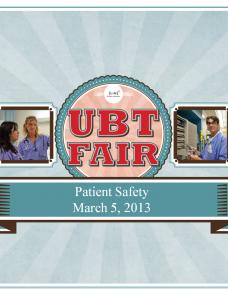As a union partnership representative (UPR) from UFCW Local 770, Annamarie Marin helps support 72 unit-based teams at the West Los Angeles Medical Center. Last year, she helped the Oncology team overcome low morale to move from Level 2 to Level 4—and it’s now on the cusp of achieving Level 5. Marin recently was interviewed about her role as a UPR by LMP Communications Manager Sherry Crosby.
Q. What experiences helped prepare you for your position?
A. I have been part of UBTs since 2005. I started as a co-lead and then became an executive sponsor. This experience helped me tremendously, because I can relate to the teams on a personal level. I have been in the exact same place, dealing with similar challenges.
Q. What is your approach to working with teams?
A. Some teams need team-building exercises, while others need to learn to trust one another and share information on projects. Starter teams don’t know how to create agendas or structure meetings, so I help facilitate their meetings. The most important thing is making sure I’m available and that teams have what they need to succeed.
Q. What early challenges did the Oncology team face?
A. They were struggling with membership involvement and morale was low. Nobody wanted to participate in meetings.
Q. How did you help the team succeed?
A. I helped staff members understand that the UBT is not there to add work to their plate. Eventually, we got a group to participate in team meetings.
We went through different trainings and started on small projects. First, they focused on staff morale. Staff members practiced expressing appreciation for each other until it became part of the team's culture. Then they moved to an affordability project. That was a pivotal point in that team’s development, because the idea came from a labor partner.
It shows team members are involved in decision making and contributing to the department’s success.
Q. What was key to the team’s success?
A. I helped the team members understand their work through a different lens—what the function of a UBT is, and their role in it. They realized they have a great department and an engaged manager. It was really about helping them understand their value to each other.

